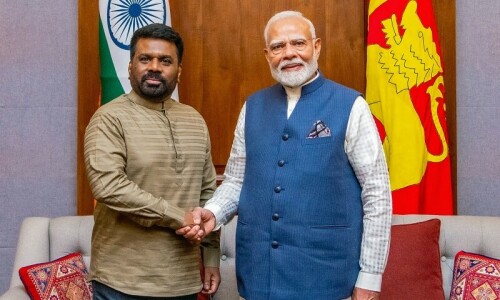Information Minister Fawad Chaudhry on Tuesday said Pakistan is paying the price for its stance of "absolutely not" with regards to the recent tour cancellations by the New Zealand and England cricket boards.
The England and Wales Cricket Board (ECB) announced on Monday that it was withdrawing both its men's and women's teams from their Pakistan tour scheduled for next month. The ECB’s decision came three days after New Zealand abandoned their tour of Pakistan citing a "security threat" minutes before the first One Day International match was scheduled to start at the Rawalpindi Cricket Stadium on Friday.
Addressing a post-cabinet meeting press conference, Chaudhry termed the entire situation "unfortunate".
"If nations want to hold their head high then there is a price for that and nations pay that. I think Pakistan is ready to deal with any challenge.
"If you say 'absolutely not' then it has a price and you have to pay it," the information minister said.
He was apparently referring to Prime Minister Imran Khan's comments in June when he categorically said that Pakistan would “absolutely not” allow any bases and use of its territory to the US for any sort of action inside Afghanistan — his clear-cut response surprising the interviewer.
Regarding the fallout from the tour cancellations, Chaudhry reiterated his comments on Twitter from earlier in the day and said Pakistan Television had incurred losses of "Rs200 million to Rs250m" in the entire affair and lawyers were being consulted regarding any legal action that can be pursued against the two boards.
The information minister said "very important" information had been received and he would hold a detailed briefing on the affair with the interior minister about "what is happening".
"You will see how all these issues are linked together with the topics of hybrid war and fake news we talk about. How fake emails and fake threats are created and then how great an outcome they have."
Chaudhry said the briefing would be held very soon in the next few days.
Success in polio eradication efforts
At the outset of his press conference, the information minister said he wanted to begin with good news and said: "A big success has been achieved in the war against polio. After seven months, only one polio case has been recorded and this is the lowest after a long time."
He said the government was "greatly satisfied" with the development, hoping that the process would continue to eventually Pakistan emerging as a polio-free country.
Regarding other details of the cabinet meeting, he said an increase of 44 per cent had been approved in the house rent ceiling of government employees from grades 1-22 to provide relief.
Moreover, Uzbekistan was approved for inclusion in the business visa list in order to strengthen Pakistan's relations with it and facilitate the business community, Chaudhry said.
The information minister addressed laws regarding social media, saying the government was following a two-pronged strategy: catching companies who delayed blocking pornographic material — particularly related to children — and amendment of laws to pursue action against individuals making objectionable videos in Pakistan.
"A new policy debate is being started on social media, [Federal Human Rights Minister] Dr Shireen Mazari is leading it and these laws will be given a new lease because this has become a very big problem currently."
The information minister also spoke about measures to revive the cinema and film industry such as the exhibition of movies from regional countries. Regarding the opening of cinemas, he said the matter was under discussion with the National Command and Operation Centre.
Regarding the upcoming census, he said it would be carried out with advanced technological tools, would target a timeframe of 540 days or 18 months for completion and would be the basis for the next general elections.
The information minister also criticised the opposition for their lack of cooperation with the government on electoral reforms, terming them as "political dwarves".
"All these [individuals] going around acting as [political] leaders, if [this decision] was made on merit, then no one would have appointed them as clerks."
















































